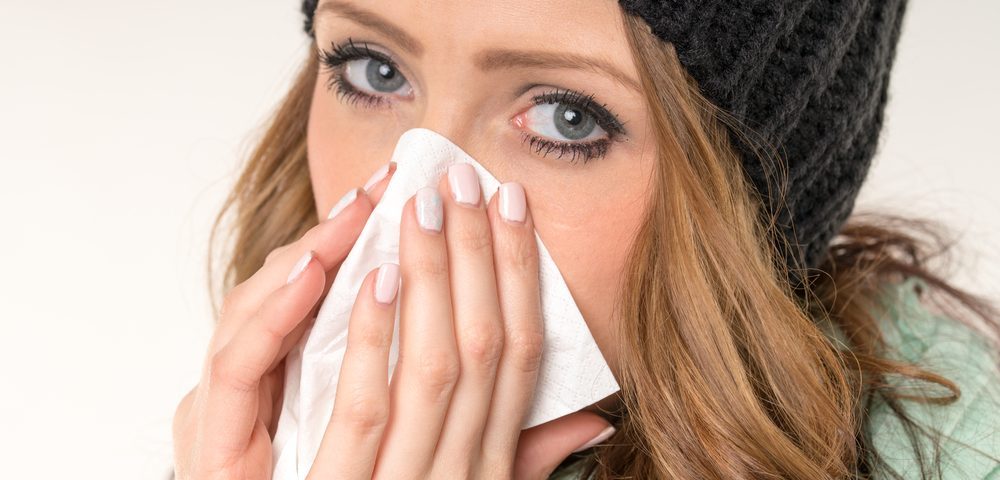When I was in the eighth grade, my pediatric rheumatologist put me on methotrexate to treat my juvenile psoriatic arthritis. It was around December, and I did pretty well for the first few weeks. But all of a sudden, cold and flu season swept the entire junior high school in January. That’s when I discovered methotrexate lowers the body’s ability to fight infection. What perfect timing! That year, I felt like I caught every sniffle, cough, sore throat, and stomach flu that went around. I hated going to school during my years of using methotrexate because I was constantly getting sick. And that didn’t help my marks or my social life.
Everyone knows schools are breeding grounds for all sorts of viruses. Even in college, I find it hard to stay healthy due to the close living quarters (plus, college dorms aren’t exactly the cleanest places on earth). Whenever someone starts coughing or feeling nauseous, you know it’s a matter of time before it spreads. But the worst part is that when you take medications like methotrexate, it often takes longer to recover from colds. Sometimes doctors even have to stop the medicine in severe cases.
For those using medications that can lower the body’s natural defenses such as methotrexate or Enbrel (etanercept), it can be tricky to stay healthy in these environments. I used to carry around small bottles of hand sanitizer to wash my hands before eating or if I had to touch my face. However, as this is no longer allowed in some schools, it may be necessary for your child to make a trip to the bathroom to wash their hands before lunch (easier said than done). I also made an effort to keep a safe distance away from friends who seemed ill, and I didn’t borrow school supplies if I could help it.
But by far, the best way to protect your child during cold and flu season is to give them and your entire household the flu shot. While it’s true it won’t prevent colds, it helps in the fight against something much more dangerous to those with weakened immune systems. Not only does the vaccine help protect your child, but having a vaccinated household creates an extra layer of protection and helps stop it from spreading to others. This is particularly important to do this year since the vaccine isn’t proving to be as effective as usual, and every bit helps.
For a good portion of my education, I worked tirelessly to prevent myself from getting sick. But what would’ve helped me out a lot is if everyone did their part to prevent the spread of colds and flu — especially other students. Maybe if more people were aware of how difficult it can be to live with a lowered immune system, everyone would try to pitch in a bit more. Getting flu shots, staying away from others while sick, and practicing good hygiene all goes a long way. I also wish it was easier for students and teachers to take sick days when they needed it, but it’s becoming harder and harder to do that. A little consideration goes a long way and makes for a good lesson plan.
***
Note: Juvenile Arthritis News is strictly a news and information website about the disease. It does not provide medical advice, diagnosis, or treatment. This content is not intended to be a substitute for professional medical advice, diagnosis, or treatment. Always seek the advice of your physician or other qualified health provider with any questions you may have regarding a medical condition. Never disregard professional medical advice or delay in seeking it because of something you have read on this website. The opinions expressed in this column are not those of Juvenile Arthritis News, or its parent company, BioNews Services, and are intended to spark discussion about issues pertaining to juvenile arthritis.

